Apply now for the RWI Research Fellows 2026. This fully supported fellowship offers Afghan researchers mentorship, stipends, and access to research resources to strengthen human rights monitoring and advocacy in Afghanistan.
About the RWI Research Fellows Programme
The Raoul Wallenberg Institute of Human Rights and Humanitarian Law (RWI) has opened applications for the 2026 RWI Research Fellows Programme, a unique opportunity designed to empower Afghan scholars dedicated to advancing human rights research and advocacy.
Each year, 8–12 Afghan researchers are selected through a highly competitive process to become RWI Research Fellows, joining a community of academics and practitioners committed to protecting and promoting human rights in Afghanistan.
Through mentorship, funding, and academic guidance, RWI provides these fellows with the tools and networks needed to conduct high-quality, evidence-based research that supports the work of human rights institutions, policymakers, and the broader international community.
Programme Overview
Purpose
The RWI Research Fellowship is designed to:
- Enhance the research capacity of Afghan scholars;
- Support local ownership of human rights discourse; and
- Contribute directly to monitoring and promoting human rights in Afghanistan.
The programme aims to maintain a strong national network of independent researchers capable of contributing to Afghanistan’s ongoing human rights documentation, advocacy, and policymaking efforts, even amid challenging circumstances.
Fellowship Benefits
Selected RWI Research Fellows receive a comprehensive package of academic and professional support, including:
- Monthly Stipend: Financial support to facilitate full-time research work;
- Mentorship: One-on-one guidance from international experts in human rights and research methodology;
- Library Access: Access to the RWI’s extensive digital and physical library resources;
- Networking Opportunities: Participation in RWI-led research circles, online workshops, and seminars;
- Publication Support: Assistance in publishing research findings in regional and international academic platforms;
- Institutional Support: Access to research partnerships and opportunities for collaboration with the United Nations and civil society organizations.
The programme also encourages gender and ethnic diversity, aiming for equitable representation among fellows each year.
Programme Focus
Fellows’ research will center on high-priority human rights issues in Afghanistan, such as:
- Civil and political rights under current governance conditions;
- Women’s rights and gender equality;
- Access to education and healthcare;
- Freedom of expression and digital rights;
- Rule of law and justice systems;
- Minority rights and inclusion;
- Humanitarian impacts of conflict and displacement.
Each project contributes directly to the UN Special Rapporteur’s (UNSR) mandate on the situation of human rights in Afghanistan, supporting evidence-based advocacy and global awareness.
Selection Process
The RWI Research Fellows 2026 will be chosen through a rigorous and independent selection process led by a qualified committee of RWI experts and external reviewers.
Selection Steps:
- Open Call for Applications: Interested scholars submit a detailed research proposal aligned with RWI’s thematic priorities.
- Application Review: The selection committee evaluates applications against academic merit, relevance to human rights, and originality.
- Interviews (if applicable): Shortlisted candidates may be invited for an online interview.
- Final Selection: The final list ensures diversity in gender, ethnicity, and disciplinary background.
Eligibility Criteria for RWI Research Fellows 2026
Applicants must:
- Be Afghan nationals currently residing in Afghanistan or abroad;
- Have a strong academic or professional background in human rights, law, political science, sociology, or a related discipline;
- Demonstrate research experience or a clear interest in conducting human rights analysis;
- Have a research proposal addressing a current or emerging human rights issue in Afghanistan;
- Be able to commit to the fellowship’s mentorship and training schedule for the entire duration of the programme;
- Possess proficiency in English, both written and spoken.
Duration
The RWI Research Fellowship 2026 typically runs for 6 to 12 months, depending on the research scope and funding. Fellows are expected to produce a final research paper or policy brief at the conclusion of the programme.
How to Apply
Applications for the RWI Research Fellows 2026 can be submitted via the official RWI website. Applicants are encouraged to prepare the following documents:
Application Requirements
- Completed online application form;
- Curriculum Vitae (CV) (maximum 3 pages);
- Research Proposal (1,000–1,500 words) outlining objectives, methodology, and expected impact;
- Letter of Motivation (maximum 500 words);
- Two academic or professional references;
- (Optional) Writing samples or published research.
Follow Our Social Media Pages
Join Our WhatsApp Channel
Follow Our Facebook Page
Related Posts
- UNICEF Climate Resilience Internship 2026 – Paid Global Opportunity for Graduates
- World Bank Summer Internship Program 2025 – Fully Funded
- UNDP Research Fellowship 2025 – Global Opportunities for Graduates
- Gates Foundation Internship Program 2025 – Apply for Global Roles
Application Timeline
| Stage | Date |
|---|---|
| Applications Open | October 2025 |
| Application Deadline | To be announced (Expected December 2025) |
| Review and Interviews | January–February 2026 |
| Final Selection | March 2026 |
| Fellowship Start | April 2026 |
Why Apply?
The RWI Research Fellows Programme provides Afghan scholars with a unique opportunity to:
- Strengthen their academic and analytical skills;
- Gain access to international mentorship;
- Contribute to human rights monitoring in a critical context;
- Publish impactful work that supports advocacy and policymaking;
- Join an international network of researchers, advocates, and organizations working toward justice and equality.
This fellowship is more than a research grant — it’s a pathway to impact for emerging human rights leaders.
About the Raoul Wallenberg Institute (RWI)
The Raoul Wallenberg Institute of Human Rights and Humanitarian Law is an independent academic institution based in Lund, Sweden. It promotes universal respect for human rights and humanitarian law, combining research, education, and international cooperation.
RWI works globally to strengthen human rights institutions and actors, with a strong focus on evidence-based policy and local capacity building. In Afghanistan, RWI has a longstanding commitment to supporting researchers and institutions advocating for justice, equality, and human dignity.
Frequently Asked Questions (FAQ)
Q1: Who can apply for the RWI Research Fellows Programme 2026?
A: The programme is open exclusively to Afghan scholars and researchers (both in Afghanistan and abroad) with an academic or professional background in human rights or related fields.
Q2: Is the fellowship fully funded?
A: Yes. Selected fellows receive a monthly stipend, mentorship, access to resources, and research support throughout the duration of the fellowship.
Q3: Do I need to have a PhD to apply?
A: No. Applicants at the graduate level or with equivalent professional experience are welcome. The key requirement is a strong research proposal and commitment to the programme’s goals.
Q4: What kind of research topics are accepted?
A: Proposals should focus on human rights issues in Afghanistan, including topics such as women’s rights, access to justice, freedom of expression, minority rights, and humanitarian challenges.
Q5: Can I apply if I am living outside Afghanistan?
A: Yes. Afghan nationals currently residing abroad are eligible and strongly encouraged to apply.
Q6: How are fellows selected?
A: A selection committee evaluates applications based on merit, relevance, and representation. Final selections ensure diversity in gender, ethnicity, and disciplinary expertise.
Q7: What deliverables are expected from fellows?
A: Fellows are expected to produce a research report, article, or policy paper by the end of the fellowship, which may be published through RWI platforms or academic journals.
Q8: Is English proficiency required?
A: Yes. Fellows must be able to read, write, and communicate in English, as mentorship and seminars are conducted primarily in English.
Q9: What happens after the fellowship ends?
A: Fellows become part of RWI’s Alumni Network, gaining access to new opportunities, collaborations, and ongoing professional development resources.
Q10: Where can I learn more or apply?
A: Visit the official RWI website: https://rwi.lu.se or follow RWI on LinkedIn and Twitter for updates on application openings.
Keywords
RWI Research Fellows 2026, Raoul Wallenberg Institute, Afghanistan human rights fellowship, RWI Afghanistan research programme, human rights research grant, Afghan scholars 2026, RWI mentorship programme, international fellowships 2026, Afghanistan research opportunities, RWI human rights support
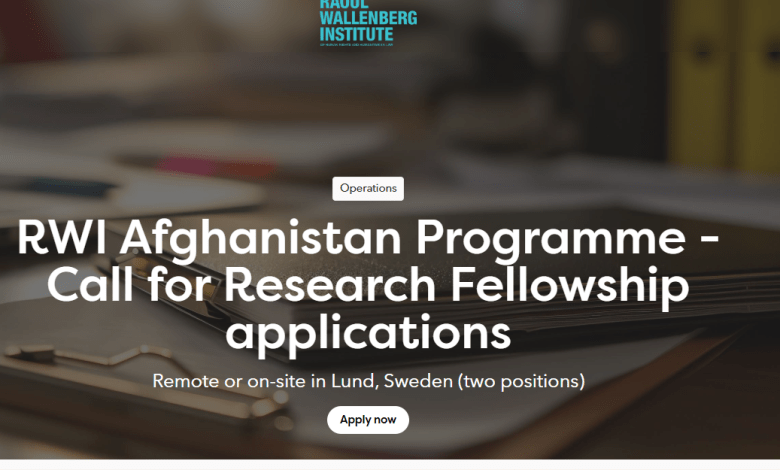
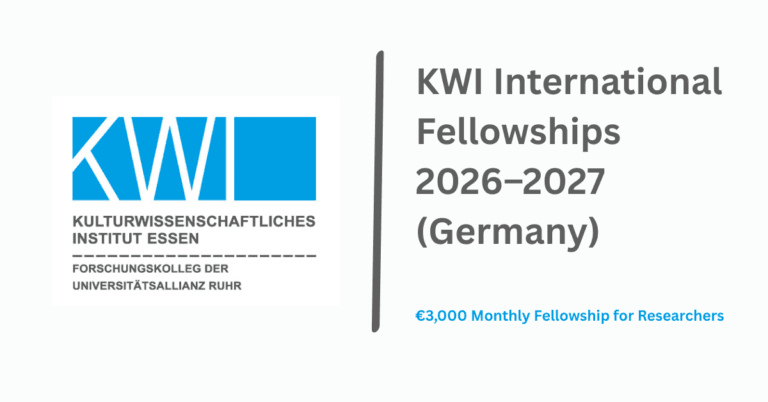
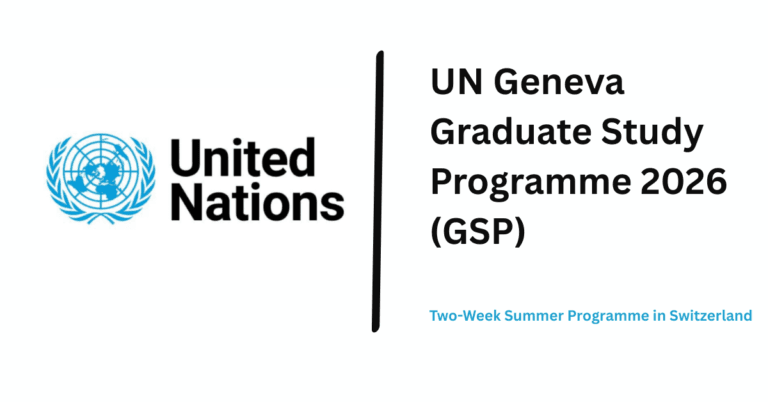
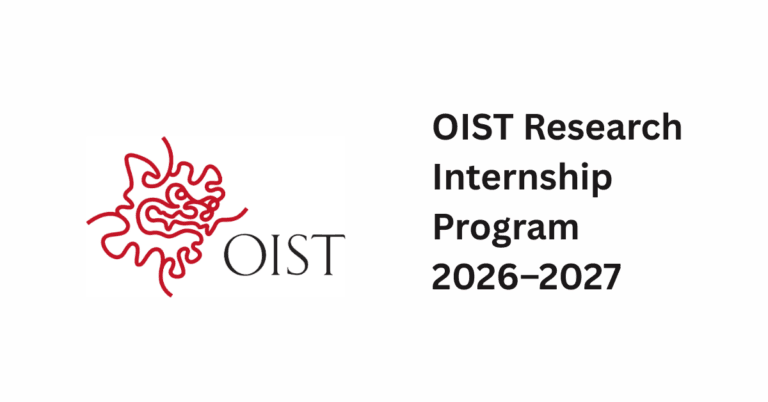
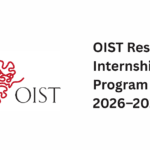
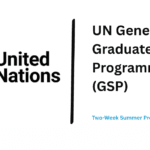
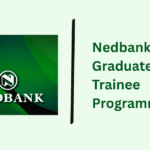
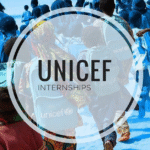
A very good opportunity to delve into the study of Human right issues and challenges of ethnic diversity.But it is only open to Afgans.I do think and pray that you extend such chance to scholars from Nigeria where issues like these are currently in the front burner.Would be a great area for research should you consider and approve so.
Thank you.